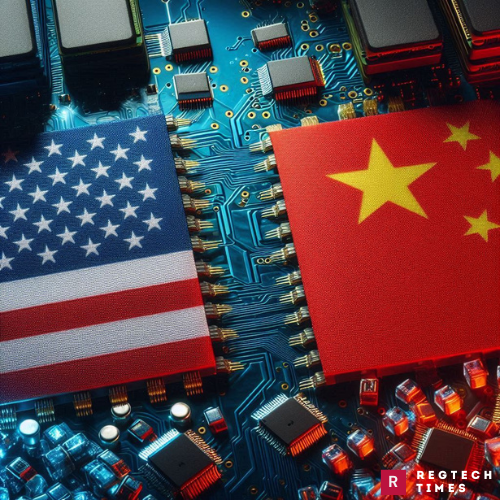In an effort to prevent powerful AI chips from reaching China, the United States has imposed strict sanctions. However, an underground network of smugglers and shady companies is helping China bypass these restrictions. This secret operation is centered in Shenzhen, a city known for its massive electronics market. Shenzhen is home to some of the world’s largest smartphone makers and electronics manufacturers.
Vendors in Shenzhen are selling AI chips openly, some even promising delivery within weeks. Large orders are common, with businesses frequently purchasing hundreds of chips at a time. Some business owners are handling shipments worth millions of dollars. One businessman revealed that he was moving $103 million worth of NVIDIA chips from Hong Kong to mainland China. This illegal trade highlights the global efforts to dodge US restrictions amidst rising military tensions between the US and China.
US Sanctions: A Paper Tiger?
The United States has been trying to control the export of essential AI chips from companies like NVIDIA, AMD, and Intel. These chips are crucial for developing technologies like self-driving cars, chatbots, and advanced medical research. More worryingly for the US, these chips can be used to develop superior weapons and cyber capabilities. Despite banning the export of these AI chips to China and labeling many Chinese companies as national security threats, the trade continues due to the high profits involved.
The Underground Network of Nvidia Chips In China: A Power Struggle in the Tech War
Companies around the world have found creative ways to get around the restrictions. Some Chinese executives have established new companies to bypass US rules. These new companies have become major players in the AI server market, partnering with American tech giants like NVIDIA, Intel, AMD, and Microsoft. Meanwhile, an underground network of smugglers and backroom deals continues to funnel AI chips into China, where such transactions are not considered illegal.
The exact scale of this trade is unclear, but reports suggest that it involves billions of dollars. Many state-affiliated entities in China have procured these restricted chips, with some flagged by the US for aiding the Chinese military. While NVIDIA and other US companies claim to comply with export controls, they acknowledge the difficulty in controlling the entire distribution chain. The complexity and vastness of this network make it tough to entirely block the flow of these vital components.
China Skirts US Sanctions; Oracle is Powering Tiktok with Nvidia AI Chips
Impact on AI Development
The US AI chip bans have certainly slowed down China’s AI development, increasing costs and making it harder to acquire necessary technology. However, the persistent black market and legal loopholes have allowed China to keep progressing. This ongoing trade has raised concerns among US officials and industry experts about the effectiveness of current restrictions and the potential for China to catch up in the AI race.
A notable case involves Nettrix, a Chinese company formed by former executives of Sugon, which was placed on the US entity list due to its ties to the Chinese military. Despite the sanctions, Nettrix has thrived, continuing to partner with American tech companies and selling servers containing NVIDIA and Intel chips to organizations linked to China’s defense sector. This shows how businesses can navigate around sanctions by establishing new entities and maintaining connections within the industry.
Intel CEO Gelsinger Warns: US Sanctions on China Could Backfire on American Chipmakers
The US has tried to adapt by toughening penalties and creating initiatives like the Disruptive Technology Strike Force to tackle technology theft and illegal procurement networks. However, limited resources and the ingenuity of those seeking to bypass the sanctions pose significant challenges. The Bureau of Industry and Security, which oversees these restrictions, operates with a very small budget. This highlights the disparity between the scale of the problem and the resources allocated to address it.
As China continues to develop its AI capabilities, the stakes grow higher. Reports indicate that US chips have contributed to advancements in Chinese missile programs and other military applications. Universities and research institutions in China have been using NVIDIA, AMD, and Intel chips for studies related to nuclear weapons and missile technology.
NVIDIA and other tech companies have adapted to the restrictions by modifying their products to comply with US regulations while continuing to sell to Chinese firms. However, the high demand for these chips ensures that alternative methods to obtain them persist. The ongoing trade in AI chips underscores the difficulties in enforcing such broad technological blockades and the relentless drive of businesses to capitalize on lucrative markets, regardless of geopolitical tensions.
The struggle to control the flow of AI technology is a critical aspect of the broader competition between the US and China. As both nations race to achieve breakthroughs in AI, the effectiveness of sanctions and the ability to enforce them will play a crucial role in shaping the future balance of technological power.


